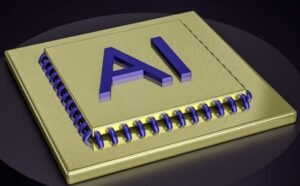Artificial Intelligence (AI) software has revolutionized numerous industries and is transforming how businesses operate. From improving customer service to automating repetitive tasks, AI software has become an essential tool for organizations looking to gain a competitive edge. In this article, we will explore some example AI software applications and how they are being used across various industries.
**Key Takeaways:**
– AI software has revolutionized industries and transformed how businesses operate.
– AI software enhances customer service and automates repetitive tasks.
– Organizations are increasingly using AI software to gain a competitive edge.
**1. Chatbots: Delivering Exceptional Customer Service**
Chatbots are perhaps one of the most commonly used AI software applications today. These intelligent virtual assistants can simulate human conversation and provide real-time support to customers. By using natural language processing algorithms, chatbots can understand and respond to customer queries, helping to improve customer service and provide assistance 24/7. *Chatbots are becoming increasingly sophisticated, with the ability to understand complex queries and provide accurate answers.*
**2. Predictive Analytics: Leveraging Data for Insights**
Predictive analytics software utilizes AI algorithms to analyze historical data and make accurate predictions about future trends and behaviors. This technology is particularly useful in finance, marketing, and healthcare sectors, where it can help identify patterns, forecast sales, detect fraudulent activity, and even predict disease outbreaks. *With predictive analytics, organizations can make more informed decisions and stay ahead of the competition.*
**3. Virtual Assistants: Streamlining Tasks**
Virtual assistant AI software, such as Amazon Alexa or Google Assistant, has gained popularity in households and businesses alike. These smart devices can perform tasks on the user’s command, such as playing music, setting reminders, providing weather updates, and even controlling smart home devices. *Virtual assistants are becoming an integral part of homes and offices, simplifying and automating everyday tasks.*
**4. Computer Vision: Enhancing Visual Recognition**
Computer vision AI software enables machines to interpret and understand visual data, such as images and videos. This technology finds applications in various areas, including facial recognition, object detection, and image classification. Industries like healthcare, retail, and security leverage computer vision to improve patient diagnosis, optimize inventory management, and enhance surveillance systems. *Computer vision enables machines to see and interpret the world like humans do.*
**5. Automated Customer Support: Solving Issues with AI**
AI software can automate customer support processes, enabling faster, more efficient issue resolution. By using machine learning algorithms, AI-powered customer support systems can analyze customer queries, suggest relevant solutions, and even learn from previous interactions. This not only enhances customer satisfaction but also reduces customer support costs for businesses. *Automated customer support systems can handle a large volume of queries simultaneously, providing quick and accurate responses.*
**Tables:**
Table 1: AI Software Use Cases Across Industries
| Industry | AI Software Use Case |
|—————|————————————————|
| Healthcare | Diagnosing diseases using medical imaging |
| Finance | Fraud detection and prevention |
| Retail | Predictive inventory management |
| Manufacturing | Predictive maintenance for production equipment |
| Marketing | Personalized marketing campaigns |
Table 2: Benefits of AI Software for Businesses
| Benefits |
|——————————————————————————–|
| Improved efficiency and productivity |
| Enhanced decision-making through data analysis |
| Cost reduction through automation |
| Increased customer satisfaction through personalized experiences |
| Improved risk management and fraud detection |
Table 3: Common AI Software Platforms
| Platform | Description |
|——————–|————————————————————————–|
| TensorFlow | Open-source machine learning framework by Google |
| IBM Watson | AI platform that provides various services and tools for developers |
| Microsoft Azure | Cloud-based AI platform offering a range of services for building models |
| AWS AI Services | AI services provided by Amazon Web Services |
| Google Cloud AI | AI tools and services offered by Google Cloud |
As AI software continues to advance, its potential for impact across industries and businesses is limitless. From streamlining tasks to enhancing customer service and predictive analytics, these examples showcase just a glimpse of what AI is capable of achieving. As organizations embrace these advancements, it is clear that AI software will play a vital role in shaping the future of business operations and innovation.

Common Misconceptions
AI Software Examples
There are several common misconceptions surrounding AI software examples. One of the major misconceptions is that AI software is capable of fully replicating human intelligence. However, it is important to understand that AI software operates based on algorithms and data, and while it can perform complex tasks, it does not possess true consciousness or emotions.
- AI software can analyze vast amounts of data quickly and efficiently.
- AI software can be trained to recognize patterns and make accurate predictions.
- AI software can automate repetitive tasks, streamlining processes.
Another misconception is that AI software examples are only applicable in highly advanced fields such as robotics and self-driving cars. While these are indeed areas where AI has made significant strides, AI software can be found in a wide range of industries and applications, including customer service, healthcare, finance, and marketing.
- AI software can enhance customer experience through personalized recommendations.
- AI software can assist in medical diagnosis and treatment planning.
- AI software can optimize investment strategies and financial planning.
Some people believe that AI software examples are primarily designed to replace humans in the workforce, leading to widespread job losses. While it is true that AI can automate certain tasks, it is also important to acknowledge that AI technology also creates new job opportunities by augmenting human capabilities and driving innovation.
- AI software can free up human workers to focus on more complex and creative tasks.
- AI software can create new job roles related to developing and managing AI systems.
- AI software can fuel economic growth and spur technological advancements.
Another misconception is that AI software examples always perform flawlessly and never make mistakes. However, AI systems are not immune to errors and can be prone to biases or inaccuracies, particularly if the training data used is flawed or biased itself. Ongoing monitoring and refining of AI software is necessary to minimize such issues.
- AI software needs continuous monitoring and maintenance to ensure accuracy and fairness.
- AI software can learn from mistakes and improve its performance over time.
- AI software requires ethical considerations to prevent unintended consequences.
In conclusion, understanding the common misconceptions surrounding AI software examples is crucial for making informed decisions and utilizing AI technology effectively. Recognizing the capabilities and limitations of AI can help dispel unrealistic expectations and foster a productive collaboration between humans and AI systems.

AI Software Examples
Artificial Intelligence (AI) has become an integral part of many industries, revolutionizing processes and offering greater efficiency and accuracy. This article highlights 10 noteworthy examples of AI software applications and their impact on various domains.
Enhanced Healthcare Diagnosis
AI software has significantly improved diagnostic accuracy in healthcare. Using deep learning algorithms, these systems analyze medical images to detect and diagnose diseases with remarkable precision.
Efficient Fraud Detection
Financial institutions utilize AI software for fraud detection, accurately identifying suspicious activities and minimizing false positives. These systems constantly analyze vast amounts of data, enabling quicker detection and prevention of fraudulent transactions.
Personalized Shopping Recommendations
AI-based recommendation systems provide consumers with personalized suggestions based on their preferences, browsing history, and purchasing behavior. These recommendations enhance the shopping experience and increase customer satisfaction.
Automated Language Translation
With advancements in natural language processing, AI software can now automatically translate text from one language to another, improving global communication and eliminating language barriers.
Smart Home Automation
AI-enabled smart home systems automate household tasks, such as adjusting lighting, temperature, and security. These systems learn user preferences and adapt to their routines, providing convenience and energy efficiency.
Autonomous Vehicles
AI-powered self-driving cars have the potential to revolutionize transportation. These vehicles use computer vision and machine learning algorithms to navigate roads, improving safety and reducing human error.
Virtual Assistants
Virtual assistants, such as Siri and Alexa, utilize AI algorithms to understand natural language and perform tasks on behalf of users. They can answer questions, manage calendars, play music, and control smart home devices.
AI in Manufacturing
In manufacturing industries, AI software optimizes production processes, predicts maintenance needs, and detects quality issues. This technology improves efficiency, reduces costs, and enhances product quality.
Predictive Analytics in Finance
AI algorithms analyze historical data and market trends to generate accurate predictions in financial markets. These predictive analytics tools assist investors, traders, and financial institutions in making informed decisions.
Agricultural Yield Optimization
AI software is used in agriculture to optimize crop yields by analyzing various variables, including soil conditions, weather patterns, and pest detection. This technology helps farmers make data-driven decisions and increase productivity.
In conclusion, AI software has permeated numerous industries, offering diverse benefits, including improved healthcare diagnostics, fraud detection, personalized shopping recommendations, language translation, smart home automation, autonomous vehicles, virtual assistants, manufacturing optimization, predictive analytics in finance, and agricultural yield optimization. As the capabilities of AI continue to advance, we can anticipate further transformative applications across various domains.
Frequently Asked Questions
What are some popular examples of AI software applications?
Some popular examples of AI software applications include:
- Virtual personal assistants like Siri and Alexa
- AI-powered chatbots for customer support
- Recommendation systems used by streaming platforms like Netflix and Spotify
- Self-driving car software
How does AI software work?
AI software works by using machine learning algorithms and data patterns to analyze and interpret complex information. It utilizes techniques such as natural language processing, computer vision, and deep learning to make decisions and perform tasks without explicit programming.
What are the benefits of using AI software?
The benefits of using AI software are:
- Increased efficiency and productivity
- Improved accuracy and reliability
- Enhanced customer experience through personalized interactions
- Automation of repetitive tasks
- Ability to process and analyze large amounts of data quickly
Can AI software replace human jobs?
AI software has the potential to automate certain tasks and impact some job roles. However, it is more commonly used to augment human capabilities rather than fully replace them. It can assist in tasks that require data analysis, decision-making, and pattern recognition, but human involvement is still necessary for critical thinking, creativity, and interpersonal skills.
What industries are benefitting from AI software?
Several industries are benefitting from AI software, including:
- Healthcare – AI-powered diagnostics and personalized medicine
- E-commerce – Recommendation systems and customer support chatbots
- Finance – Fraud detection and algorithmic trading
- Manufacturing – Predictive maintenance and quality control
- Transportation – Autonomous vehicles and traffic optimization
How can businesses integrate AI software into their operations?
Businesses can integrate AI software into their operations by:
- Identifying specific use cases where AI can provide value
- Collecting and organizing relevant data for training AI models
- Implementing appropriate AI algorithms and tools
- Testing and refining the AI software based on real-world feedback
- Continuously monitoring and updating the AI system for optimal performance
What are the ethical considerations of using AI software?
Some ethical considerations of using AI software include:
- Privacy and data protection
- Algorithmic bias and fairness
- Transparency and accountability
- Unintended consequences and potential risks
- Job displacement and societal impact
How can AI software be trained?
AI software can be trained using large datasets and appropriate algorithms. The training process involves:
- Feeding the AI system with labeled or unlabeled data
- Defining the objective or desired outcome
- Iteratively adjusting the model’s parameters based on feedback
- Evaluating the performance and fine-tuning the model
- Repeating the process to improve accuracy and generalization
What are the limitations of AI software?
Some limitations of AI software are:
- Dependency on high-quality and diverse training data
- Lack of common sense reasoning
- Difficulty in handling novel or unexpected scenarios
- Unintentional reinforcement of biases present in the training data
- Challenges in explaining and understanding the decision-making process
Is AI software capable of learning and adapting over time?
Yes, AI software can learn and adapt over time through a process called machine learning. By continuously analyzing new data and receiving feedback, AI models can update their knowledge and improve their performance. This allows them to become more accurate and efficient in their tasks.





